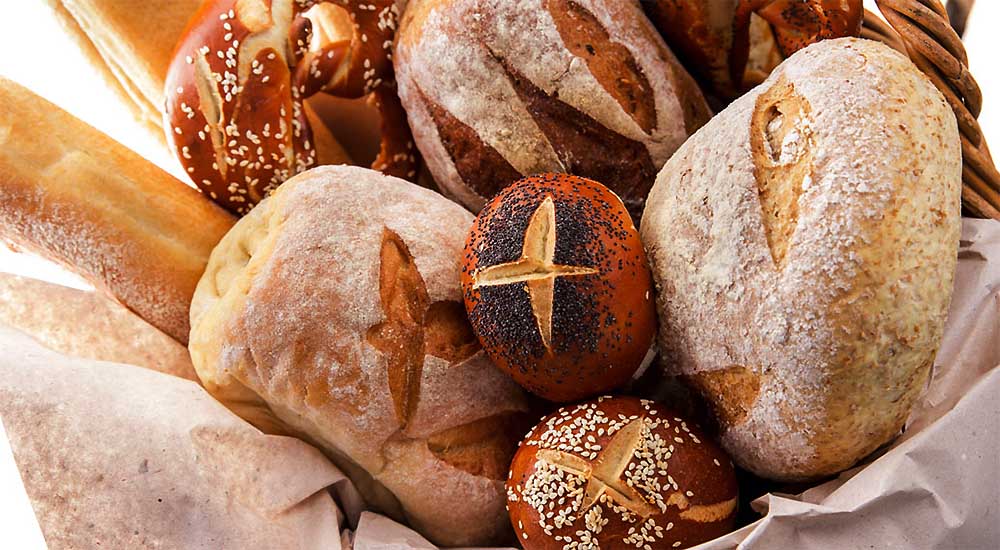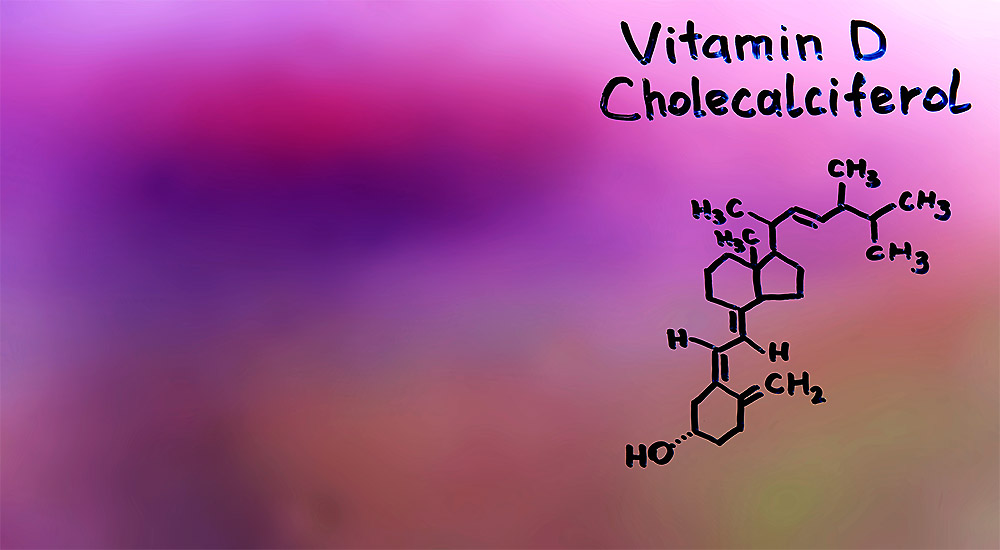Safe to Eat Sourdough or Ezekiel Bread on a Gluten-free Diet?

Do you get confused by certain headlines about food or your health?
Have you seen the article about sourdough bread being “naturally” gluten-free? Did it make you want to try it?
It’s hard enough to be gluten-free without someone constantly tempting you with remarks like:
“A bite won’t kill you.”
“Try it; I made it just for you.”
“Have you heard? Sourdough bread is ‘naturally’ gluten-free.”
“Ezekiel bread is safe because it’s sprouted.”
Once you understand that gluten is a very large protein, impossible for any human to digest… Did I just say that? Yes, I did.
If you’re human; you cannot fully digest gluten.
Does that mean ALL humans are gluten-sensitive? No; it simply means that the very large, convoluted, difficult to digest gluten protein CANNOT be fully digested by humans. Cows can do it, but they have four stomachs and chew their cud. Just sayin’…
It’s VERY important to know if gluten is a problem for you. Do you have celiac disease? Do you have gluten sensitivity, also known as non-celiac gluten sensitivity?
It’s critical information because if your immune system reacts to this protein, you WILL suffer ill health of one sort or another if you continue to eat it, regardless of how small the amount. What can you expect? Well, gluten is associated with over 300 symptoms and conditions and is known to affect every organ and system of the human body. Therefore if it’s bothering you, there is a myriad of possible symptoms it can cause and it differs from person to person.
Digestive problems, headaches, joint and body pain, brain fog, fatigue, weight problems, anxiety, depression, allergies, skin conditions, autoimmune disease, liver disease, and on and on and on.
Therefore, when there’s a new “buzz” about the latest way to eat gluten that supposedly won’t bother you, or not much anyway, I all but want to tear my hair out.
I know you miss gluten, so do I! What I don’t miss is feeling ill and that’s exactly where cheating with gluten will get me, and you too if you’re sensitive.
One wonders, how do these untruths get started?
Many times its decent research that has been misconstrued by a non-doctor who is writing an article for a magazine. The science or health writer doesn’t fully comprehend the science (understandable when you look at the language used in research articles) and takes what they do understand and runs with it. Compound the lack of full understanding with the desire to “entice readers”, and you have untruths spreading like wildfire.
Take the 2011 research published in Clinical Gastroenterology and Hepatology. The authors were simply trying to create a bread that wouldn’t bother those suffering from celiac disease, despite it containing wheat flour – certainly a goal-worthy endeavor.
Let’s see where the confusion arose by starting with what the researchers actually did.
First note this was a very small study – 13 individuals started; only 11 completed the full 60 days. The researchers took celiacs whose disease was fully under control and put them in 1 of 3 groups and fed them bread for 60 days – 7 ounces per day, equivalent to about 4 to 7 slices per day.
Group 1 was fed regular bread with over 80,000 ppm of gluten [Note: “gluten-free” is considered anything below 20 ppm (parts per million).] Now you see what kind of “hit” you get from gluten. Not surprisingly, 2 out of 6 celiacs in this group were forced to drop out because they became so ill. And everyone in this group was discovered to suffer adverse effects based on follow-up blood and biopsy results. Again, no surprise, they were eating bread.
Group 2 contained just 2 participants. Their bread was hydrolyzed (the protein is broken down with the use of fermentation with sourdough lactobacilli organisms plus the use of other fermented foods) such that its gluten content was a mere 2,480 ppm – still obviously far above the 20 ppm considered to be gluten-free, but also 70% less gluten than standard bread.
How do you think this group did?
Well, they have celiac disease and they were eating gluten so, again, not surprisingly, they developed negative effects demonstrated by follow-up blood and intestinal biopsy testing.
And finally, there was the final group. Group 3 contained 5 participants and their bread was so well and fully hydrolyzed (still using the process used in group 2’s bread – sourdough organisms) that the finished product contained only 8 ppm gluten. Ah… now we had what? A gluten-free bread, by definition.
How do you think this group did? Yes. No surprise, celiac eating a gluten-free bread suffered no ill effects. They felt fine and their blood tests and biopsy all remained normal.
What IS interesting of course, is that the researchers STARTED with wheat and made a wheat bread gluten-free through hydrolyzing it with natural probiotic organisms and the use of fermentation. But please understand this: the bread served to group 3 is NOT available anywhere on any market’s shelf.
Standard sourdough bread is NOT gluten-free and won’t be, based on how it’s typically made.
This study shows that such a bread IS possible, and that IS what the researchers were excited about. But they NEVER said their conclusion was that sourdough bread was safe for celiacs or those with gluten sensitivity – never! Yet, that’s what the tantalizing, titillating headlines read… grrr!
Hopefully, that clears it up for you.
What about the gluten content of Ezekiel bread or sprouted grains? Let’s keep this one short and sweet: Ezekiel bread and sprouted grains of wheat, rye, barley, or any wheat “cousin” such as faro, etc DO contain gluten. It may be less and you may FEEL okay or less bad, but eating gluten as a celiac or gluten-sensitive individual DOES compromise your health. Follow-up labs will prove it.
IMPORTANT: Gluten can be insidious in this regard. Some individuals get the smallest crumb and feel terrible. I consider them lucky. That may sound odd but it’s truly good their body lets them know it doesn’t like what they just ate. For others, they can “cheat” or have something like sprouted wheat and not “feel” a negative result. The negativity IS happening, but they are unaware of it. Obviously it’s more difficult for that person to be “good” on their diet when they receive no clue they cheated. They are still suffering ill effects; gluten IS shortening their life; their health IS being compromised. They just don’t “feel” it. A proper lab test will show it but not everyone has the wherewithal to get regular lab tests.
The labeling laws have made it easy for us. If it doesn’t say gluten-free don’t eat it. Ezekiel bread used to have some confusing data on its label, but that has been cleared up years ago. It’s not gluten-free and it doesn’t say it is.
My advice: go with that and avoid catchy headlines until you run them by me first. I’m here to decipher such confusion.
Do you need help with your health?
We have the diagnostic and testing tools, the clinical experience, and a different medical approach to discovering the root cause of why you have the symptoms that are bothering you. As long as you are ready to make some dietary and lifestyle changes, we can help you. We will "hold your hand" through the changes, step by step, to make each step an easy one. We are located in Clearwater, FL, at 1000 S Ft Harrison, at the corner of Ft. Harrison Ave. and Magnolia St. There is plenty of parking space directly accessible from Ft Harrison. If it is not convenient for you to come to Root Cause Medical Clinic, we offer telehealth/telemedicine consultations to residents of certain states. Call us for details.
Contact us for a Consultation – Call 727-335-0400

Dr. Vikki Petersen DC. CCN
Founder of Root Cause Medical Clinic
Certified Functional Medicine Practitioner
Dr Vikki Petersen is a public speaker, author of two books, several eBooks and creates cutting edge content for her YouTube community. Dr Vikki is committed to bringing Root Cause Medicine and its unique approach to restoring health naturally to the world.
Ask a Doctor
Have a health concern you'd like to speak with a doctor about? Or just want clarity on a subject? Ask Us!
Featured Articles
Popular Stories
Reference:
- Clinical Gastroenterology and Hepatology. 2011 Jan;9(1):24-9. doi: 10.1016/j.cgh.2010.09.025. Epub 2010 Oct 15. Safety for patients with celiac disease of baken goods made of wheat flour hydrolyzed during food processing.
- Greco L, Gobbetti M, Auricchio R, Di Mase R, Landolfo F, Paparo F, Di Cagno R, De Angelis M, Rizzello CG, Cassone A, Terrone G, Timpone L, D’Aniello M, Maglio M, Troncone R, Auricchio S.


